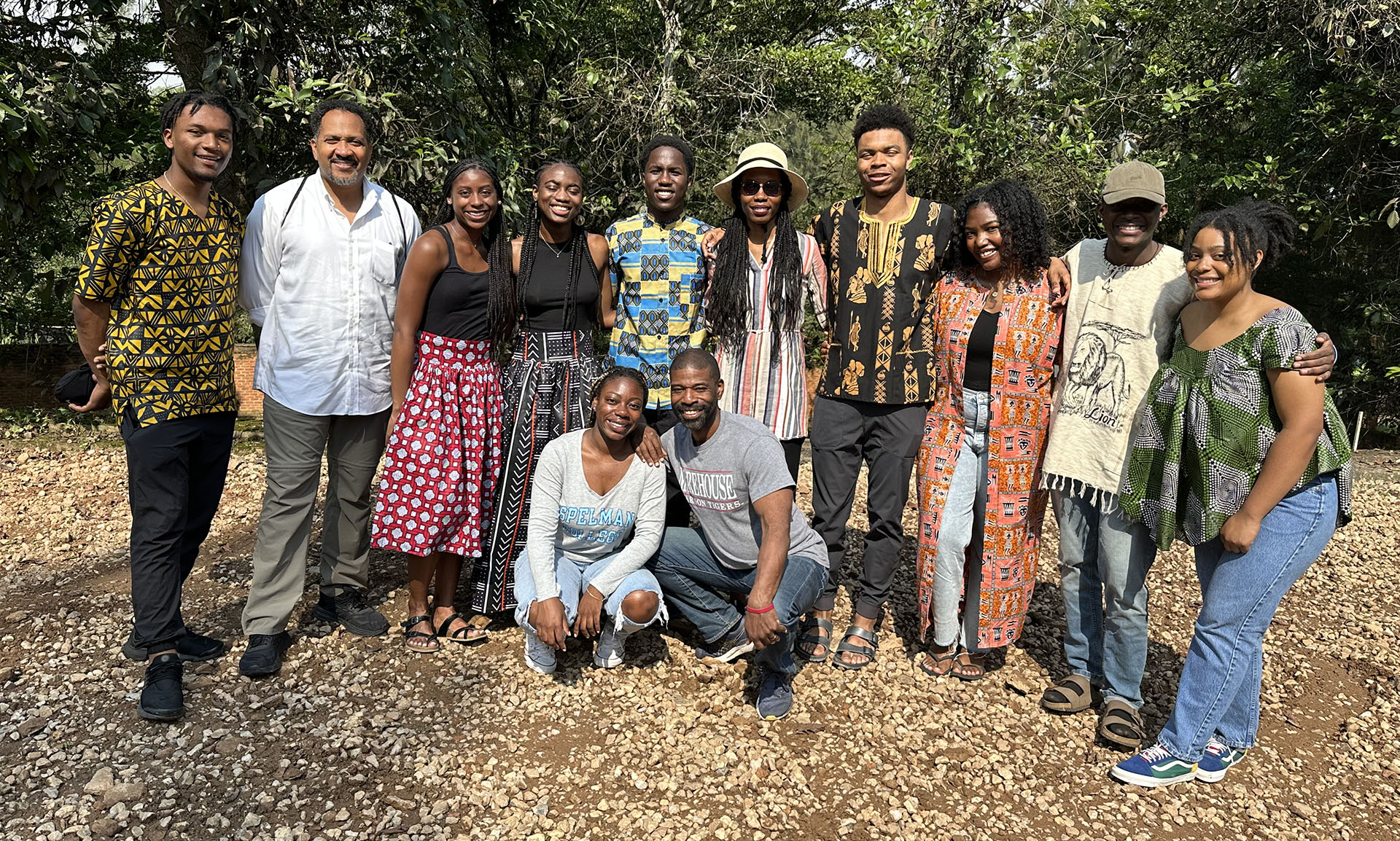
On New Year’s Day 2023, I boarded a plane bound for Kigali, Rwanda, with four of my Morehouse brothers, five Spelman sisters, and one from Morehouse and another from Spelman professor. A guide accompanied us. She worked for the foundation that funded our flight and bus travel once we were in the country. The foundation funded our meals that almost always included avocado and some genus of bean, and our lodging that always included a mosquito net that hung over the bed, like cloth over native teepees.
Our guide, she curated our itinerary, which was packed with visits to museums that recounted the country’s hundred-day genocide, coffee and crop plantations, a great lake that boarded Uganda (which we were supposed to visit, but did not because there was an Eboli outbreak), two different – very different – universities, various European companies that offended my sense of nationhood, the United States Embassy where we interrogated our country’s intentions, an entrepreneurial incubator that was funded by Sweden and decorated with their style of furnishings, and an art gallery that was resplendent with gardens and a large pavilion. We had dinner at this the gallery with its owner. I sat three people down from his left. When he noticed that I wasn’t eating, he asked me why. I told him that I didn’t eat foods with carbohydrates and that I was a pescatarian. Upon his order, after about 20-minutes, the chef served me a plate with a pan seared fish and collard greens that had been sauteed with tomatoes and onions. I devoured this with two glasses of red wine, which made me a bit heady, silly, and relaxed.
When I left Rwanda, I did so with my mind and heart freed from the stereotypical impression of a country that had been ravaged by genocide. I had discovered distances that were verdant and hilly with volcanoes; beautiful and curious and resilient and forgiving people; immaculate roads and streets; mangos growing on public trees; and herds of red motorcycles that operated like yellow cabs in New York City.
Just before we departed the city of Musanze after a four-day visit, my Morehouse brothers and I planted trees behind the dining hall in the compound where we stayed in Hobbit-like cottages. There, at the hole that we dug for a tree that would be our contribution to the country’s greenery, we formed our traditional link and sang – out of tune – our college hymn, which bids us to stay true to old Morehouse, “So to bind each son the other, into ties more brotherly.”
As I write this, sitting in a tea shop that’s less than a 30-minute walk from campus, I’m three-weeks away from my 52nd birthday. Even so, blessings are tying me to young brothers who are nearly 10-years younger than my two daughters.
These entries are my reflections from this study abroad program that is but one of the benefits of being a Man of Morehouse. I’m not good at maintaining communication with people, not even those I grow fond of. However, when I now come across one of my Spelman sisters with whom I shared those three weeks, I stop, we hug, laugh, reminisce, embrace, and swap declarations of friendly love. When I see one of my brothers, we stop, hug, laugh, joke, and give each other a fist bump and head-nod.
Thank you, Rwanda, for growing my family. Thank you for expanding my heart. Thank you for proving to me that not even a hundred-thousand machetes can sever God’s cherished creation. Murakoze.